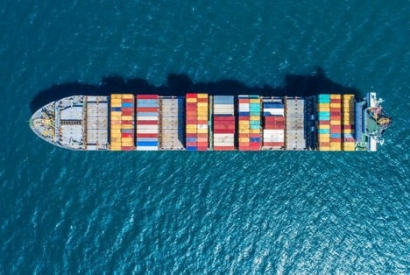
Ships are crucial for the transportation of goods around the world. However, many ships operate on heavy fuel oils (HFOs), leading to the emission of pollutants into the world’s oceans and atmosphere. Although cleaner fuels are available, many companies opt for HFOs due to their low cost. However, HFOs are banned in the national waters of many countries. In addition, the International Maritime Organization (IMO) is seeking to ban their use in Arctic waters. Due to the environmental concerns and the national and international regulations associated with HFOs, there is considerable need for low-cost, clean and renewable alternatives to HFOs for the maritime industry. This is the problem that the IDEALFUEL consortium will address.
LIGNIN IS THE KEY
IDEALFUEL is aiming to develop methods to convert woody materials such as saw dust and wood chips into renewable marine fuels. Their approach revolves around the conversion of lignin – the polymer found in the structural materials of plants and trees – from dry plant matter (otherwise known as lignocellulosic biomass) into renewable fuels. Leading the project of 11 participants based the Netherlands, Germany, Switzerland and Spain is Dr. Roy Hermanns (Mechanical Engineering, TU/e).
To achieve its goal, IDEALFUEL plan to devise an efficient and low-cost two step chemical process. In the first step, lignin is extracted from lignocellulosic biomass in the form of Crude Lignin Oil (CLO), leaving behind a solid cellulose material that can be used in the paper industry or even converted into ethanol. In the second step, the CLO is refined and converted into a Biogenic Heavy Fuel (Bio-HFO) that can used in combination with traditional fossil fuels in a fuel blend or neat in the engines of the world’s maritime fleet.
EXTENSIVE COLLABORATION
IDEALFUEL is a broad collaboration taking care of the complete value chain from production of CLO to the end-user. IDEALFUEL is coordinated by TU/e and involves participants from four EU countries. The participants are Vertoro B.V. (NL), Tec4Fuels GmbH (DE), BLOOM Biorenewables Sarl (CH), Uniresearch B.V. (NL), Winterthur Gas & Diesel Ltd. (CH), SeaNRG (NL), thyssenkrupp Marine Systems GmbH (DE), OWI Oel-Waerme-Institut GmbH (DE), Agenica Estatal Consejo Superior de Investigaciones Cientificas (ES), and Varo Energy Netherlands B.V. (NL).
Further information with regards to related TU/e research on the production of renewable fuels from lignin can be found in this article in relation to the work of Vertoro.

